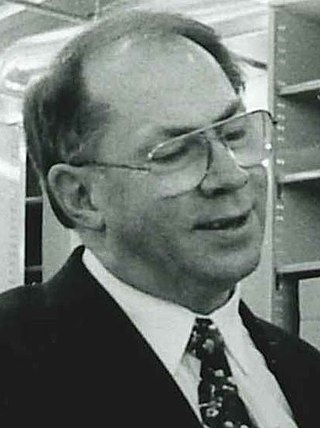Related Research Articles
The New Zealand National Party, shortened to National or the Nats, is a centre-right political party in New Zealand. It is one of two major parties that dominate contemporary New Zealand politics, alongside its traditional rival, the Labour Party.

The Christian Heritage Party of New Zealand was a New Zealand political party espousing Christian values and conservative views on social policy. Although it never won seats in an election, it came close to doing so in 1996 as part of the Christian Coalition and briefly had a member in Parliament.

The 2002 New Zealand general election was held on 27 July 2002 to determine the composition of the 47th New Zealand Parliament. It saw the reelection of Helen Clark's Labour Party government, as well as the worst-ever performance by the opposition National Party. The 2020 election would see it suffer a greater defeat in terms of net loss of seats.

The 1999 New Zealand general election was held on 27 November 1999 to determine the composition of the 46th New Zealand Parliament. The governing National Party, led by Prime Minister Jenny Shipley, was defeated, being replaced by a coalition of Helen Clark's Labour Party and the smaller Alliance. This marked an end to nine years of the Fourth National Government, and the beginning of the Fifth Labour Government which would govern for nine years in turn, until its loss to the National Party in the 2008 general election. It was the first New Zealand election where both major parties had female leaders.
Jim Anderton's Progressive Party was a New Zealand political party generally somewhat to the left of its ally, the Labour Party.
United Future New Zealand, usually known as United Future, was a centrist political party in New Zealand. The party was in government between 2005 and 2017, first alongside Labour (2005–2008) and then supporting National (2008–2017).

United New Zealand was a centrist political party in New Zealand founded in 1995. It merged with the Christian-based Future New Zealand party to form the United Future New Zealand party in 2000.

The 1996 New Zealand general election was held on 12 October 1996 to determine the composition of the 45th New Zealand Parliament. It was notable for being the first election to be held under the new mixed-member proportional (MMP) electoral system, and produced a parliament considerably more diverse than previous elections. Under the new MMP system, 65 members were elected in single-member districts by first-past-the-post voting, while a further 55 "top-up" members were allocated from closed lists to achieve a proportional distribution based on each party's share of the nationwide party vote.

The Christian Coalition was an Evangelical Christian political party operating in New Zealand. It was an alliance of the now-defunct Christian Heritage Party and the Christian Democrats, New Zealand's two theologically conservative Christian parties. The Christian Coalition did not meet with the success that it hoped for, and was eventually dissolved.

This article discusses Christian politics in New Zealand.
The Christian Democrat Party of New Zealand was a Christian socially conservative political party established in 1995. It contested the 1996 general election as part of the Christian Coalition with the Christian Heritage Party.

The 2005 New Zealand general election on Saturday 17 September 2005 determined the membership of the 48th New Zealand Parliament. One hundred and twenty-one MPs were elected to the New Zealand House of Representatives: 69 from single-member electorates, including one overhang seat, and 52 from party lists.
Bernard James Ogilvy is a New Zealand educator and politician. He was a list member of Parliament (MP) for the United Future New Zealand party from 2002 to 2005. He left United Future with the breakaway Kiwi Party in 2007.

Graeme Ernest Lee is a former New Zealand politician. Originally a National Party MP, he broke away to found the Christian Democrat Party.
John Wright is a former New Zealand politician. He was a member of parliament from 1996 to 2002, representing the Alliance. Before entering Parliament he owned the Port-a-Loo company.

The 44th New Zealand Parliament was a term of the Parliament of New Zealand. Its composition was determined by the 1993 elections, and it sat until the 1996 elections.

Nelson is a New Zealand parliamentary electorate, returning one Member of Parliament to the House of Representatives of New Zealand. From 1853 to 1860, the electorate was called Town of Nelson. From 1860 to 1881, it was City of Nelson. The electorate is the only one that has continuously existed since the 1st Parliament in 1853.

Wellington Central is an electorate, represented by a Member of Parliament in the New Zealand House of Representatives. Its MP since November 2008 has been Labour Party's Grant Robertson. In the 2020 election he was opposed by James Shaw (Greens) and Nicola Willis (National), both also entered parliament via their respective party lists.

The 50th New Zealand Parliament was elected at the 2011 general election. It had 121 members, and was in place from December 2011 until September 2014, followed by the 2014 general election. The first sitting of the 50th Parliament was held on 20 December 2011, where members were sworn in and Lockwood Smith was elected Speaker of the House. This was followed by the speech from the throne on 21 December. John Key continued to lead the Fifth National Government. Following the resignation of Smith, David Carter was elected Speaker.
Matakana is a former New Zealand parliamentary electorate in the Thames-Coromandel District, which existed for one parliamentary term from 1993 to 1996, and was held by Graeme Lee. In 1994, Lee defected from the National Party to the Christian Democrat Party.
References
- ↑ "Part III - Party Lists of unsuccessful Registered Parties" (PDF). Electoral Commission. Archived from the original (PDF) on 8 February 2013. Retrieved 22 June 2013.